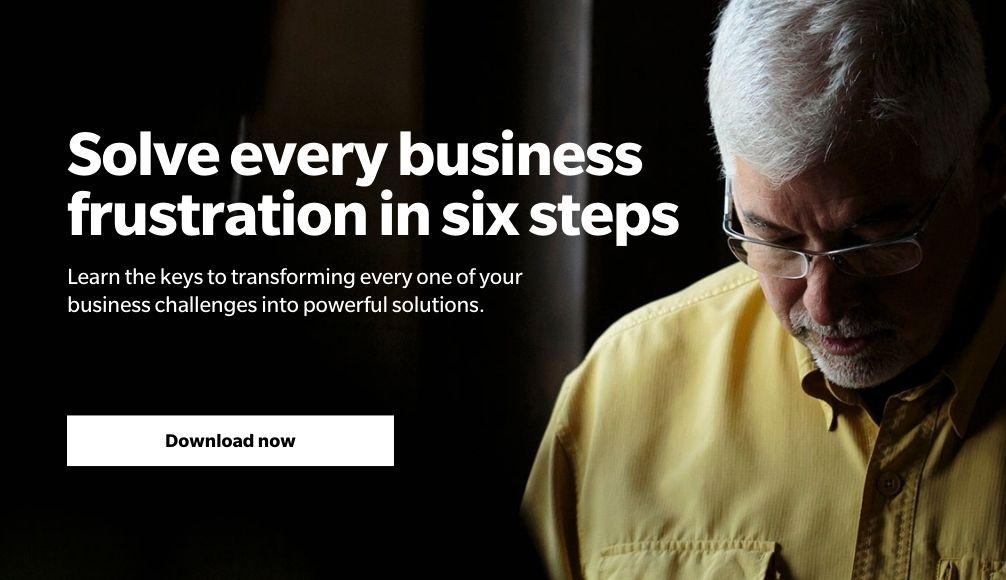If there’s one experience, more than any other, that small business owners across every industry share, it’s how hard it is to get your people to do what you want them to do, the way you want it done. Every owner has a picture of the best way to produce results in their business. Every employee comes to your company with their own experiences, beliefs and judgments—their own sense of how things should be done that may be very different from yours. Getting everyone on the same page—your page—isn’t easy.
Given the unique lens each of us brings, it always strikes me as a wonder when any relationship works, personal or professional. The relationship between an owner and the members of their team is particularly fraught with what psychology calls “authority projections”: the mental process by which someone attributes something that’s living in them internally onto an authority figure.
I’m not a therapist, but I am a passionate observer of the human condition and, over the years, I’ve seen enough instances where employees who admittedly had unhealthy relationships with parents, teachers, coaches or even older siblings as a child unconsciously projected their unmet needs from childhood onto me or other authority figures in our company.
For example, if someone was frequently criticized by a parent when they were young, they might experience any constructive feedback from someone in charge as an attack. Or, if someone was neglected as a child, they might be needy for attention and act like the recognition they receive is never enough.
The owner of a business sometimes becomes a stand-in for the mom or dad that employees wished for but never had. If an employee has had painful experiences as a child with authority figures, they sometimes put the owner of the company they work for on a pedestal, anxiously determined to please them. But, for an employee whose childhood experiences have resulted in unrealistically high expectations of leaders, their default position can become: “Don’t tell me what to do.”
Of course, business owners can also project their unmet needs onto their team members. If, for example, your parents consistently prioritized their needs over yours, leaving you with no healthy sense of your right to your own needs, you may not be sharing your pictures of how you want things done in a way that works. If you notice that you often feel victimized by how little your people get what you’re asking of them or do what you’re asking them to do, you may have never learned how to effectively express what you need.
When I produce an outcome in my company that’s different from what I intended, I will eventually find in myself how I held back from wholeheartedly expressing what I wanted. Right underneath it is always a fear that I discover in retrospect. I don’t know many leaders who are truly skilled at issuing instructions with the right balance of clarity, firmness and empathy. Owning my needs is a challenge for me on occasion, and I’m grateful for the chance leading EMyth has given me to lean into my right to have them.
The dynamics between owners and employees are complex but far from hopeless. Owning a business is a precious opportunity to create a world of your own: a world that reflects your picture of who you’re going to serve, how you’re going to serve them, who’s going to be on your team and how the members of your team are going to treat each other and your customers. The issue of projections is important because it can give you a deeper understanding of what you’re up against—what you can control and what’s out of your control.
You can’t control how any specific employee’s authority projections cause them to regularly tune out or misinterpret what you ask of them, but:
- You can put a stake in the ground about the qualities of employees who have a place on your team and qualities that don’t.
- You can explore the reasons why you keep employees who continuously show you that they can’t do things Your Way.
- You can learn how to work on your business, not just in it, so you can turn your business into a world of your own with:
- A culture that reflects the best of who you are and what you care about,
- Well-crafted systems that reflect your standards and experience, systems that make sense, get results and are happily followed by the right employees,
- Company values that everyone on your team is excited and inspired by,
- Written standards that everyone understands and supports, and
- An appreciation of the kind of leadership your business is demanding of you.
- You can find a good balance between being receptive to your team’s feedback and trusting your instincts about the best way to get things done.
- You can build a hiring system that identifies applicants who resist being told what to do as well as those who see Your Way as their dream come true.
- You can examine whether you’re as effective as you could be at eliciting the attitudes and behavior you want from your employees, and then learn how to express your needs in a way that really lands.
- You can build a company that gives you the daily experience that your team is operating Your Way.
Will you?
If something you’ve read here has struck a chord, tell me about your experience. You can reach out to me at ifrahm@emyth.com




Comments